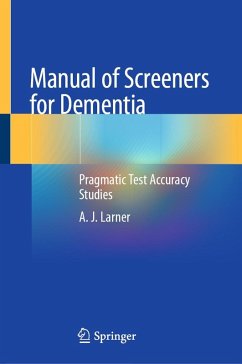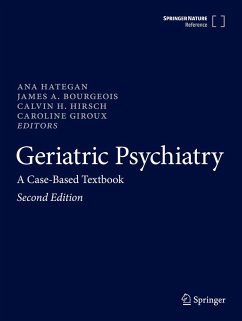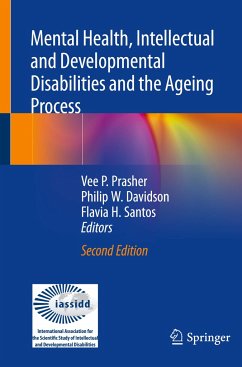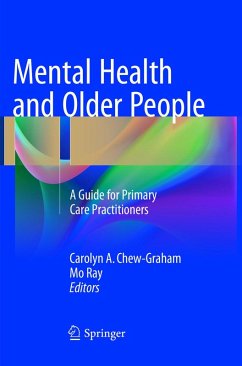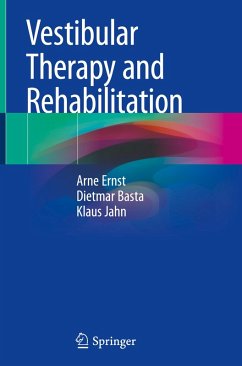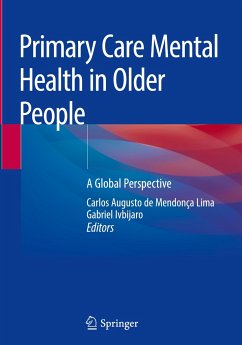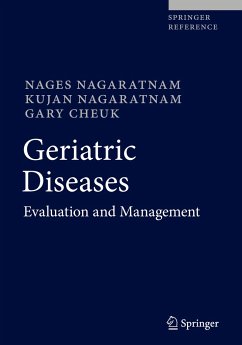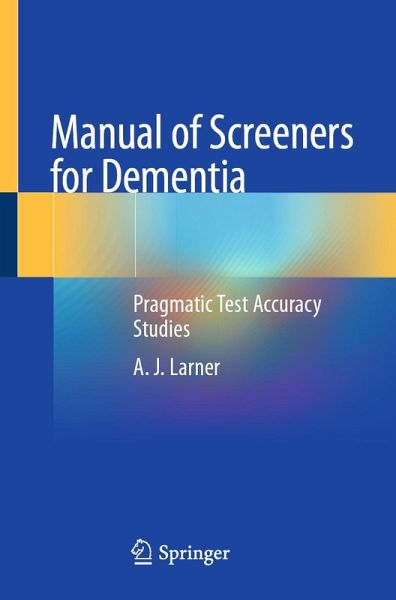
Manual of Screeners for Dementia
Pragmatic Test Accuracy Studies
Versandkostenfrei!
Versandfertig in 6-10 Tagen
46,99 €
inkl. MwSt.
Weitere Ausgaben:

PAYBACK Punkte
23 °P sammeln!
This book draws on the author's experience in conducting pragmatic test accuracy studies on screening instruments for dementia/mild cognitive impairment. To facilitate comprehension and assimilation, all data is presented in an easily accessible, succinct and user-friendly way by means of a structured tabular format that allows tests to be easily compared. The pragmatic design of studies ensures high external validity and generalizability for the test results.The book includes a wealth of data on previously presented studies, as well as hitherto unreported test measures ("Number needed" metric...
This book draws on the author's experience in conducting pragmatic test accuracy studies on screening instruments for dementia/mild cognitive impairment.
To facilitate comprehension and assimilation, all data is presented in an easily accessible, succinct and user-friendly way by means of a structured tabular format that allows tests to be easily compared. The pragmatic design of studies ensures high external validity and generalizability for the test results.
The book includes a wealth of data on previously presented studies, as well as hitherto unreported test measures ("Number needed" metrics). It presents recently described and new diagnostic metrics (Likelihood to be diagnosed or misdiagnosed; Summary utility index; Number needed for screening utility); data from new studies on screeners (Attended with sign; Free-Cog; Two question depression screener; Jenkins Sleep Questionnaire; Triple test); and previously unpublished data (combination of SMC Likert and MACE; IADL Scale and MMSE). Given its scope, the book will be of interest to all professionals, beginners and seasoned experts alike, whose work involves the assessment of individuals with cognitive (memory) complaints.
To facilitate comprehension and assimilation, all data is presented in an easily accessible, succinct and user-friendly way by means of a structured tabular format that allows tests to be easily compared. The pragmatic design of studies ensures high external validity and generalizability for the test results.
The book includes a wealth of data on previously presented studies, as well as hitherto unreported test measures ("Number needed" metrics). It presents recently described and new diagnostic metrics (Likelihood to be diagnosed or misdiagnosed; Summary utility index; Number needed for screening utility); data from new studies on screeners (Attended with sign; Free-Cog; Two question depression screener; Jenkins Sleep Questionnaire; Triple test); and previously unpublished data (combination of SMC Likert and MACE; IADL Scale and MMSE). Given its scope, the book will be of interest to all professionals, beginners and seasoned experts alike, whose work involves the assessment of individuals with cognitive (memory) complaints.



